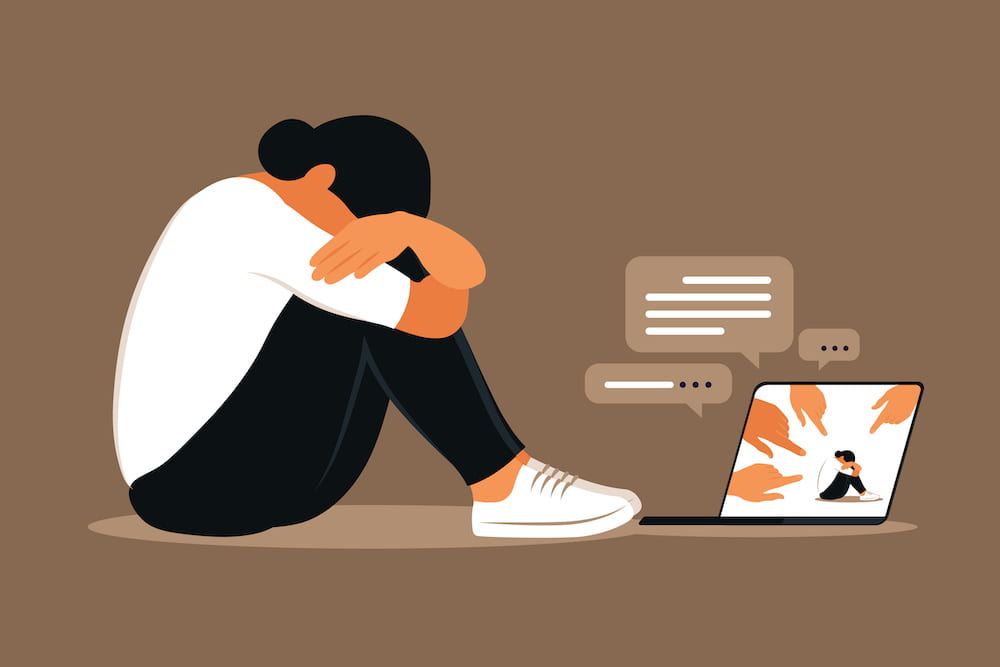Featured image graphic by елена калиничева
Shame, stigma and COVID-19
These terms may seem at first unrelated, but they are standing in a closer relation than expected. Stigmatising of healthcare workers, out of fear of being seen as spreaders of disease, has a long history (Dolezal et al. 2021). Behaviour that is deemed as unacceptable, according to norms by groups that are dominating in society, imposes stigma onto those engaging in the behaviour (Dolezal 2021). Not only stigma but also shame has historical importance, since it was employed as a tool for punishment practises (Nussbaum 2004). Professor Luna Dolezal highlighted the stigmatisation of healthcare professionals in her presentation at Bournemouth University, in which she elucidated her research about the implications of online shaming during COVID-19 in the UK, on workers in the health sector.
The accessibility of the internet enables harmful messages to be read at any time, anywhere but also permanently (Dolezal et al. 2021). During the pandemic as explained by Dolezal, particularly, professionals working in healthcare, such as doctors or nurses, fall under these personal attacks of online shaming. In these cases, the professionals were made accountable for failing, which is assumed doctors should not, without considering the fact that doctors are also only human and not “superhuman” (Dolezal et al. 2021, p.483). Shaming people online potentially can lead into two directions, the first one would be that there is low engagement with the shameful message which makes it irrelevant as time progresses, and the second one could be rather detrimental, which is that the message spreads further and leads to longtime engagement (Dolezal et al. 2021). In addition, Dolezal also educated us about the detrimental effects on the mental health of shaming victims, but also on possible reputational damages doctors may suffer from.
Dolezal highlighted the significance of interdisciplinary analysis of shame during her talk, with examples including how war times metaphors contribute to our understanding of shame. The term war is associated with a threat and therefore can cause fear (Flusberg et al. 2018), which in turn may further reinforce the fear associated with health care workers being responsible for spreading the virus. Political leaders included the war metaphor in their repertoire of speeches during COVID-19, such as Boris Johnson’s declaration of a “wartime government” (cited by Kirksey and Fearnley 2021). As another example, President Trump supported the use of war rhetoric when he implied China to be the enemy, because the virus emerged from this country (Bates 2020). In this scenario, however, Asian American citizens had to suffer under constant attacks (Bates 2020), which can be argued as shaming them for the emergence of the virus. Attacks of stigmatisation during COVID-19 such as these, mainly occur on social network sites such as Twitter (Fan et al. 2020).
Particular because shame and stigma can affect individuals it is important to find regulations for shaming attacks on social media. Also media reports about transgressions of, for example, nurses or doctors, should be regulated in a way that does not villainize these professionals and further fuels the shaming culture.
References:
Bates, B.R., 2020. The (In) Appropriateness of the WAR Metaphor in Response to SARS-CoV-2: A Rapid Analysis of Donald Trump’s Rhetoric. Frontiers in Communication [online], 5 (June). DOI: 10.3389/fcomm.2020.00050.
Dolezal, L., 2021. Shame, Stigma and HIV: Considering Affective Climates and the Phenomenology of Shame Anxiety. Lambda Nordica [online], 26 (2-3), 47-75.
Dolezal, L., Rose, A. and Cooper, F., 2021. COVID-19, online shaming, and health-care professionals. The Lancet [online], 398 (10299), 482-483. DOI: 10.1016/S0140-6736(21)01706-2.
Fan, L., Yu, H. and Yin, Z., 2020. Stigmatization in social media: Documenting and analyzing hate speech for COVID-19 on Twitter. Proceedings of the Association for Information Science and Technology [online], 57 (1), e313. DOI: 10.1002/pra2.313.
Flusberg, S.J., Matlock, T. and Thibodeau, P.H., 2018. War metaphors in public discourse. Metaphor and Symbol [online], 33 (1), 1-18. DOI: 10.1080/10926488.2018.1407992.
Kirksey, E. and Fearnley, L., 2021. The war against Covid is over – if we want it to be. The Guardian [online]. 22 September 2021. Available from: https://www.theguardian.com/commentisfree/2021/sep/22/the-war-against-covid-is-over-if-we-want-it-to-be [Accessed 12 January 2022].
Nussbaum,M., 2004. Hiding from humanity: disgust, shame, and the law [online]. New Jersey: Princeton University Press.
елена калиничева, 2020. Cyber bullying. Depressed woman sitting on the floor. Opinion and the pressure of society. Shame. Vector flat [image]. Adobe Stock. Available from: https://stock.adobe.com/uk/images/cyber-bullying-depressed-woman-sitting-on-the-floor-opinion-and-the-pressure-of-society-shame-vector-flat/475321565?asset_id=475321565&continue-checkout=1 [Accessed 17 December 2022].
